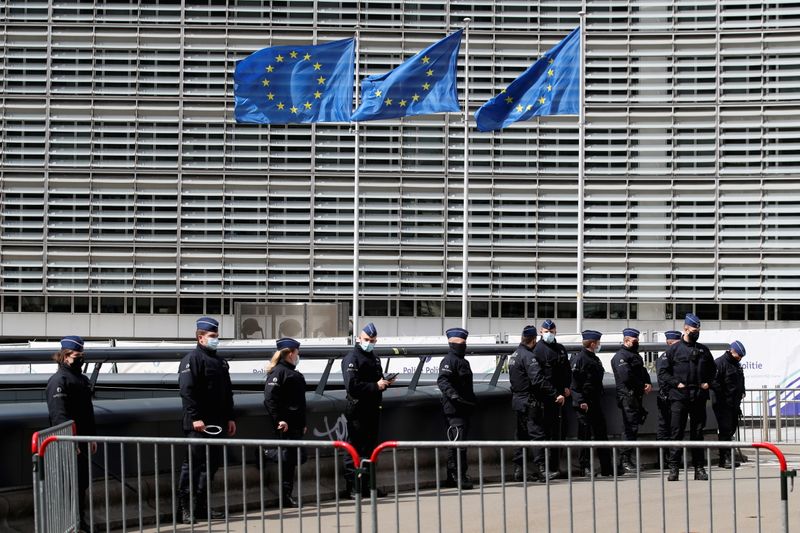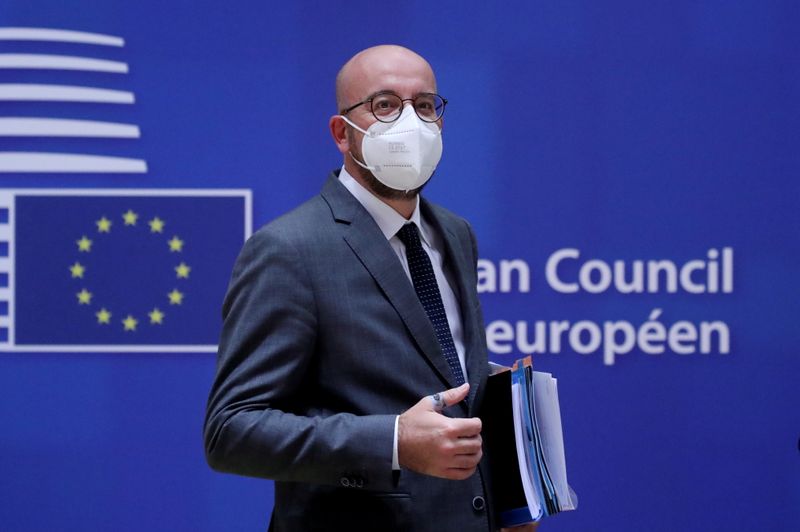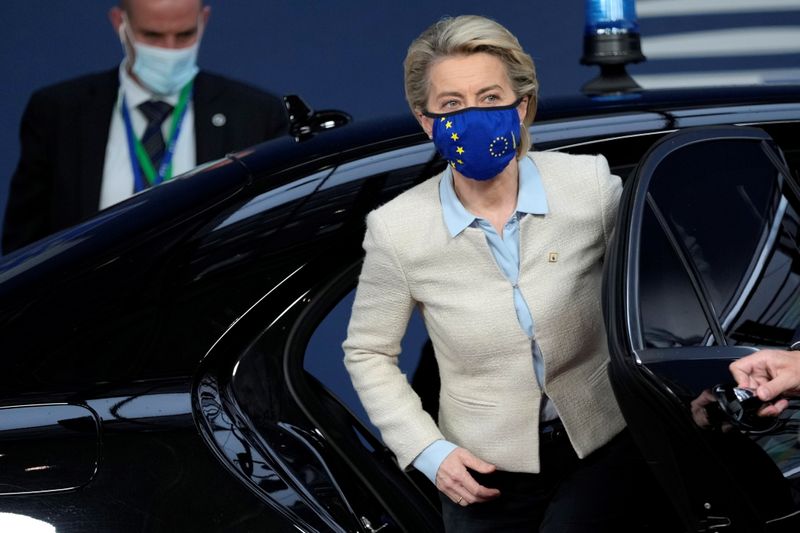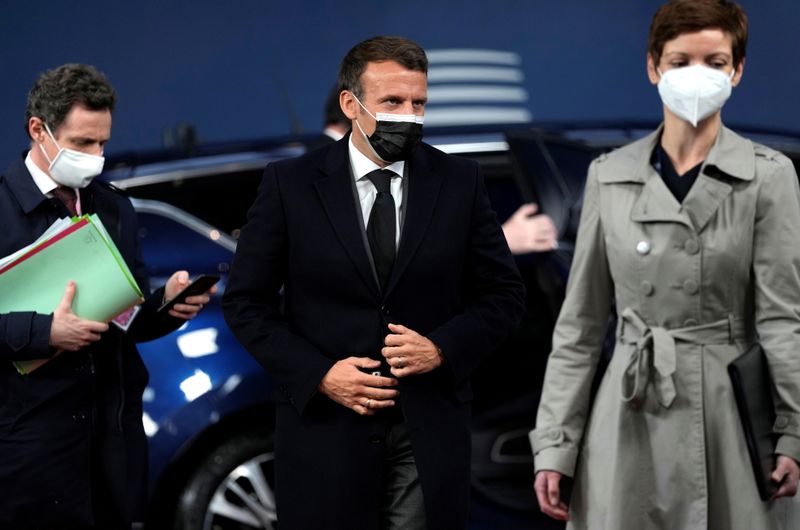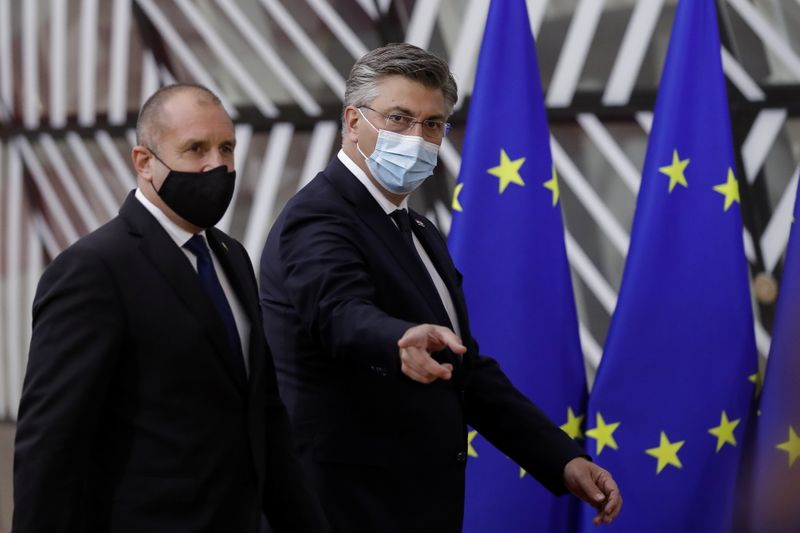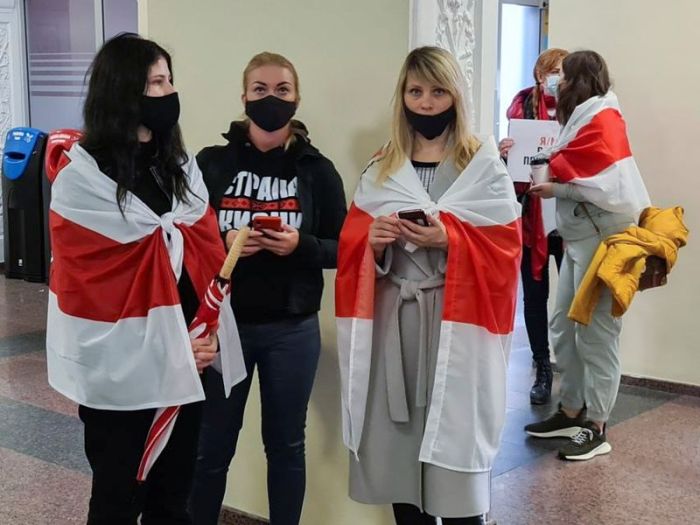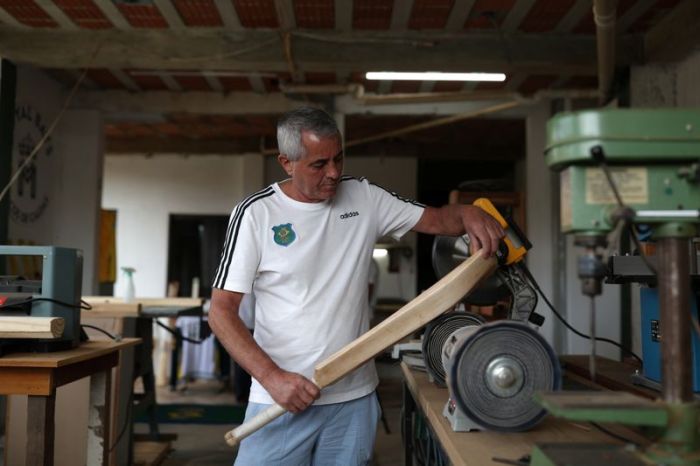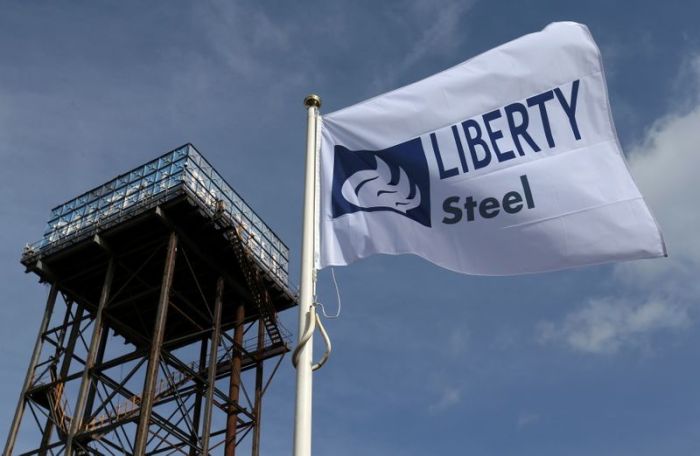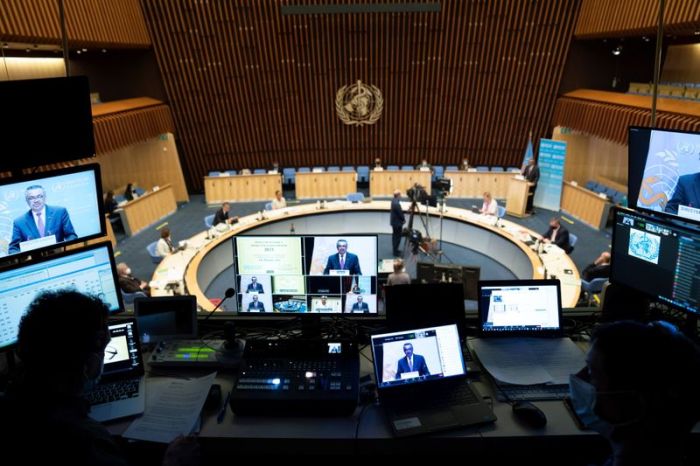BRUSSELS (Reuters) – Belgium said on Monday international sanctions against Belarus over the grounding of a civilian flight should be “swift and severe” as European Union leaders gathered to discuss airspace restrictions on top of other punishments.
EU leaders, as well as the United States, strongly condemned Belarus over Sunday’s incident during which Minsk scrambled a warplane and forced a Ryanair jetliner to land to arrest a dissident, Roman Protasevich, who had been on board.
“The reaction should be swift and be severe,” Belgian Prime Minister Alexander de Croo told journalists ahead of talks among all 27 national EU leaders from 1700 GMT.
He said a fourth package of EU sanctions aimed at Belarus and targetting the financial sector should be brought forward and the bloc “should also do something related to civilian aviation.”
Three Baltic states said Belarusian airspace should be declared “unsafe” and that the EU should close its airspace to Belarusian flights. Poland wants to suspend all flights between the EU and Belarus until Protasevich walks free.
Summit chairman Charles Michel said the incident was “an international scandal” and hope the 27 would agree sanctions on Monday, which require unanimity of all EU countries and often take weeks to prepare.
A Latvian airline, airBaltic, became the first to announce it would no longer use Belarusian air space, while France and Ireland said air traffic restrictions could be part of the EU’s response.
But it was not immediately clear whether that would amount to a legal ban, who would institute or police it, or what the exact costs would be.
The European air traffic control agency Eurocontrol said it was working to help airlines avoid Belarusian air space if they wished. It said around 2,500 flights using EU airspace took off from, landed in or overflew Belarus in the week to May 19.
Germany demanded explanations from Minsk but there has been no word yet from Berlin on any air traffic restrictions.
France’s minister for Europe, Clement Beaune, called the plane’s forced diversion “an act of state piracy that cannot be left unpunished”, and proposed tougher sanctions against Belarus.
SANCTIONS
Italy on Monday summoned the Belarusian ambassador and said Minsk “will be called to account”.
The summit of EU leaders would likely decide to tighten sanctions already in place against Belarus, where President Alexander Lukashenko has been in power for 27 years and stands accused of grave human rights violations.
The EU has blacklisted 88 individuals and seven companies accused of “repression and intimidation” of people protesting against Lukashenko’s victory in a contested presidential election last year.
Lukashenko denies election fraud and Belarusian authorities have described the actions of law enforcement agencies as adequate and necessary.
The sanctions include a ban on travel to the EU and the freezing of any assets held in the bloc, including by Lukashenko and his son.
“We could extend these sanctions to other officials,” Beaune said, suggesting an airspace ban would be “reasonable protective measure because Europeans’ lives were put at risk.”
The Brussels-based EU executive on Monday summoned the Belarusian ambassador, called for the immediate release of Protasevich and an international investigation into the incident.
The EU has so far trod warily on imposing sanctions on Belarus because of the risk that it would push Lukashenko into even closer ties with Russia.
(Reporting by Sabine Siebold, John Chalmers, Gabriela Baczynska, Additional reporting by Laurence Frost and Blandine Henault, writing by Gabriela Baczynska, Editing by Giles Elgood, Timothy Heritage and Toby Chopra)

